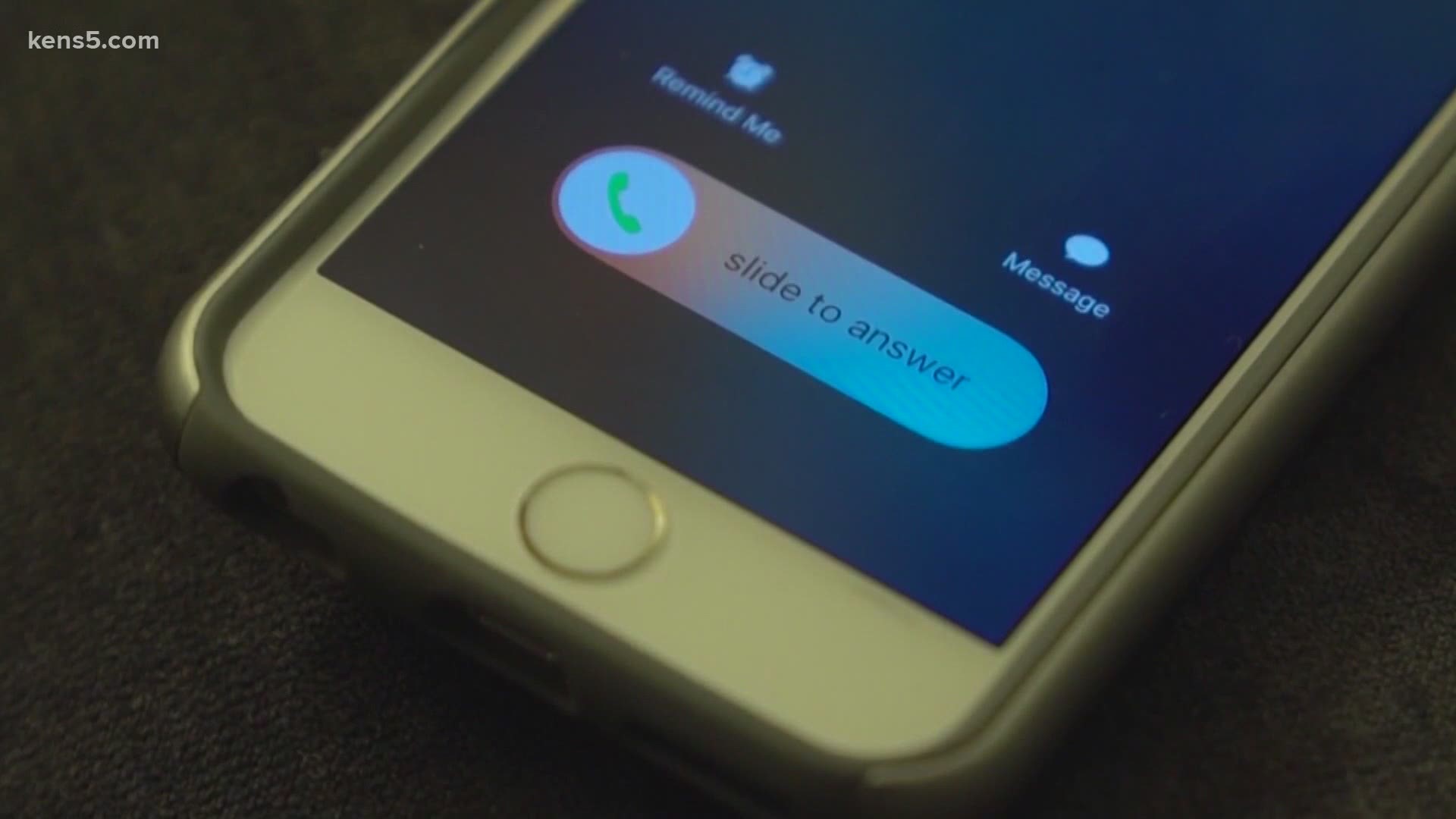SAN ANTONIO — Cases of the coronavirus are hitting an all-time high in our area. Contact tracers are working to track those who have been exposed to help stop the spread. Yet, there are people pretending to be contact tracers who hope to profit off the confusion.
“Hi, this is Debra with San Antonio Metro Health District,” said one Metro Health contact tracer while making calls. “I was giving you a call today because we have identified you as having a recent COVID-19 infection.”
It is a call you do not want to get, but San Antonio Metro Health is asking you to answer when a contact tracer rings. Director of Metro Health Dr. Dawn Emerick, who last week announced her upcoming resignation, made this plea:
“If you get a number that says 210-207, pick up the phone,” she said. “We’re going to leave a message for you. We’re going to give you a number to call us back. Call us back. That is probably us trying to control this virus. Pick the phone up. Please help us.”
That is because a large number of the people are ignoring the calls.
“Fifty percent of our calls,” said Dr. Emerick. “People are not answering our phone. Fifty percent. How the heck can we contain this if you’re not calling us back?”
Many of us do not pick up a number we do not recognize because it is most likely a scam. Plus, it is easy these days to spoof a phone number so it looks like it is coming from Metro Health. Here is how to tell the difference between a contact tracer and a scammer:
They may ask you some personal information like your name, address, health information and for the names of people you have seen and places you have been.
“We identify everybody the sick individual comes in contact with and make an attempt to reach those people,” said Christina Carmon, an epidemiology program manager with Metro Health. “Contact tracing is important so that we can identify those that maybe at highest risk for developing the illness. When people do not answer our phone calls, that information is lacking. We may be missing educating individuals that may be at risk.”
A real contact tracer’s interview takes between five and 15 minutes. The contact tracer will provide you education and recommendations. A fake tracer will ask for even more personal information. Protect yourself.
Do not give out your social security number, bank account, credit card number or immigration status. You will never need to pay a contact tracer, so do not give them money. Plus, if you get a text message or email from a contact tracer, never click on a links. Legitimate tracers do not ask you download anything.
You put the community in danger if you do not return a real contact tracer’s call So, if in doubt, call Metro Health to check if a contact tracer contacted you.
If you believe you have been contacted by fake contact tracer, hang up, do not respond, click on or download any items in a text or email.

